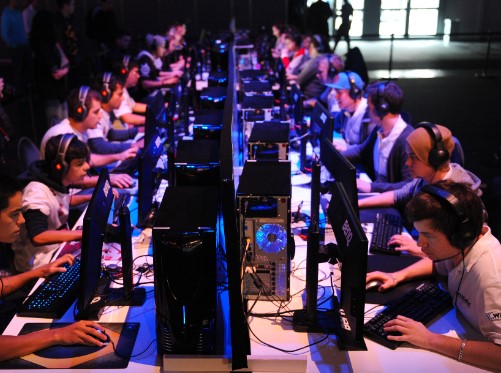In the ever-expanding landscape of gaming, multiplayer games have emerged as a dominant force, reshaping the way individuals interact with virtual worlds. This in-depth exploration delves into the multifaceted realm of multiplayer gaming, uncovering its evolution, diverse genres, social dynamics, and the profound impact it has on the gaming community.

Evolution of Multiplayer Gaming
The origins of multiplayer gaming trace back to the early days of arcade and home console gaming. As technology advanced, so did the possibilities for connected gameplay. From local split-screen experiences to global online connectivity, multiplayer gaming underwent a remarkable evolution, allowing players to engage with friends and strangers alike in real-time.
Diverse Genres in Multiplayer Gaming
Multiplayer gaming spans an extensive array of genres, catering to diverse player preferences. From the intense battles of first-person shooters (FPS) like Call of Duty to the strategic teamwork required in multiplayer online battle arena (MOBA) games like League of Legends, there’s a multiplayer game for every taste. Role-playing games (RPGs), sports simulations, and even cooperative survival games contribute to the rich tapestry of multiplayer experiences.
Social Dynamics and Community Building
One of the defining aspects of multiplayer gaming is the social dynamics it introduces. Gamers no longer play in isolation; instead, they join vast virtual communities. Whether teaming up with friends or forming alliances with fellow players worldwide, the social aspect of multiplayer gaming fosters connections, friendships, and a sense of camaraderie that extends beyond the digital realm.
Global Connectivity and Cross-Platform Play
The advent of high-speed internet has transformed multiplayer gaming into a global phenomenon. Players can connect with others from around the world, transcending geographical boundaries. Moreover, the rise of cross-platform play allows individuals on different gaming consoles or devices to share the same virtual space, further enhancing the inclusivity and connectivity of multiplayer experiences.
Esports and Competitive Gaming
Multiplayer gaming has evolved into a competitive arena with the rise of esports. Professional players and teams compete in tournaments with substantial prizes, and fans worldwide tune in to watch these high-stakes matches. The emergence of esports has elevated multiplayer gaming to a spectator sport, with dedicated leagues, championships, and a passionate global audience.
Cooperative and Team-Based Gameplay
Cooperative and team-based gameplay is a hallmark of many multiplayer experiences. Whether embarking on epic quests in massively multiplayer online role-playing games (MMORPGs) or coordinating tactical maneuvers in team shooters, multiplayer games encourage collaboration and strategic thinking. The synergy between players becomes essential for success, fostering teamwork and communication skills.
Player vs. Player (PvP) Dynamics
On the flip side, multiplayer games often feature player vs. player (PvP) dynamics, where individuals compete against each other. Whether engaging in one-on-one duels or participating in large-scale battlegrounds, PvP elements introduce a competitive edge to the gaming experience. The thrill of outsmarting human opponents adds a dynamic layer to multiplayer games.
Customization and Personalization
Many multiplayer games offer extensive customization options, allowing players to personalize their characters, avatars, and gaming experiences. This level of customization not only enhances individual expression but also contributes to the creation of unique identities within the gaming community. The ability to showcase personal flair adds depth to the social fabric of multiplayer gaming.
